Mistakes can happen, and for some, those mistakes may involve criminal activity, resulting in serious consequences that impact their lives both in the short and long term.
Facing criminal charges is a significant and rare event for most individuals.
It’s essential to understand that everyone charged with a criminal offence has the right to access legal representation.
In Toronto, securing a qualified criminal defence lawyer is especially important when confronting such charges. The city is home to many skilled lawyers specializing in various areas of criminal law, including impaired driving, assault, fraud, and homicide.

| In this article, JuriGo outlines the responsibilities of criminal defence lawyers and highlights the top law firms in Toronto dedicated to this field. |
|---|
What are the responsibilities of a Criminal Defence Lawyer ?
A criminal defence lawyer’s primary responsibility is to represent individuals accused of criminal offences. These offences can range from minor infractions, such as petty theft, to serious crimes, like murder. Their fundamental objective is to defend the rights of the accused while navigating the complexities of the legal system, whether it involves provincial or federal law.
In Toronto, as in any other place in Canada, a criminal defence lawyer's main duty is to ensure that their client receives a fair trial. This involves scrutinizing the charges, analyzing the evidence, and ensuring that due process is followed throughout the legal proceedings.
Beyond the technicalities of the law, a criminal defence lawyer must serve as an advocate for their client, guiding them through what can often be an intimidating and stressful process.
Here are the key responsibilities of a criminal lawyer:
Providing Legal Counsel and Advice
As soon as a person is arrested, they have the right to request the assistance of a lawyer. One of the primary responsibilities of a criminal defence lawyer is to provide comprehensive advice about the charges and their potential repercussions. This guidance is vital for navigating the legal system and understanding the next steps in the process.
| For instance, a lawyer will typically counsel their client to exercise the right to remain silent immediately upon arrest. |
|---|
Lawyers have a crucial responsibility to ensure their clients fully understand their legal rights and the options available to them during the case. They must simplify complex legal terminology and procedures into clear, accessible language. This task can be especially challenging when working with individuals who may have little familiarity with the law or the legal system.
Moreover, in a city as diverse as Toronto, where many languages are spoken, if a client does not speak or understand English fluently, the lawyer will make every effort to access resources to ensure that the client fully comprehends all the necessary information.
Investigating the Case
An effective criminal defence is impossible without a thorough investigation. One of the defence lawyer's main tasks is to investigate every aspect of the case. This includes reviewing police reports, interviewing witnesses, examining evidence and looking for inconsistencies or errors in the prosecution's case.
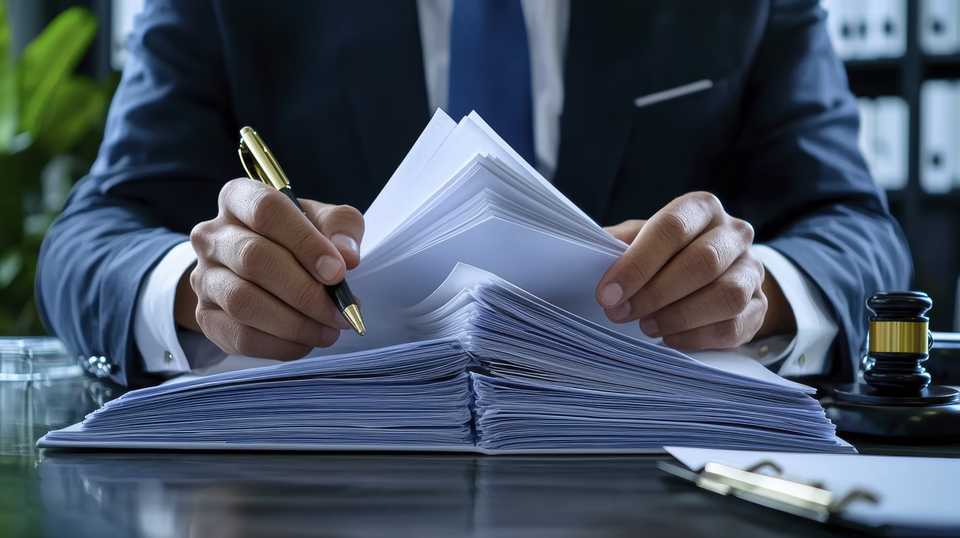
In Toronto, as elsewhere, criminal defence lawyers often work with private investigators or experts in various fields to build a solid defence. For example, forensic experts may be called in to analyze DNA or other physical evidence.
In addition, lawyers must ensure that the evidence gathered by the prosecution has been obtained legally, by following all the appropriate procedures. If it has not, they can ask for it to be excluded from the trial.
Duties Before Trial
Before the trial, a criminal defence lawyer can have various responsibilities that depend on the specific circumstances of the case. During this phase, the lawyer can lay the groundwork for the entire defence, negotiate with the Crown prosecutor, and file pre-trial motions.
Negotiating with the Crown Prosecutor :
A key pre-trial responsibility of a defence lawyer is negotiating with the Crown prosecutor. Many criminal cases in Toronto are resolved through plea bargains, where the accused agrees to plead guilty to a lesser charge in exchange for a reduced sentence.
Negotiating a plea deal involves a careful assessment of the evidence against the client and an analysis of the potential outcomes of proceeding to trial. The lawyer must decide whether accepting a plea deal is more advantageous than continuing with the trial.
Indeed, while plea bargaining can be beneficial for both parties, the lawyer must ensure that any agreement aligns with their client’s best interests.
Filing Pre-Trial Motions :
Before the trial begins, a criminal defence lawyer in Toronto may file various pre-trial motions. These motions can challenge specific aspects of the prosecution's case, including the admissibility of evidence.
| For example, if evidence was obtained in violation of the accused’s constitutional rights, such as through an unlawful search, the lawyer may file a motion to suppress that evidence. Other motions might seek to dismiss certain charges or even request the entire case be thrown out due to insufficient evidence. |
|---|
These motions are critical in shaping the direction of the trial and can significantly impact the case's outcome. A successful motion could result in the exclusion of key evidence, thereby weakening the prosecution's case or potentially leading to reduced or dismissed charges.
Duties During the Trial
Once the trial begins, the defence lawyer’s role becomes even more active. Their job during the trial is to challenge the prosecution’s evidence, present a compelling defence, and ensure that their client’s rights are protected.
Cross-Examination of Witnesses :
One of the most important aspects of a criminal defence lawyer’s role during a trial is the cross-examination of witnesses. This involves questioning the prosecution’s witnesses to uncover inconsistencies, biases, or doubts about their testimony. Effective cross-examination can significantly weaken the prosecution’s case.
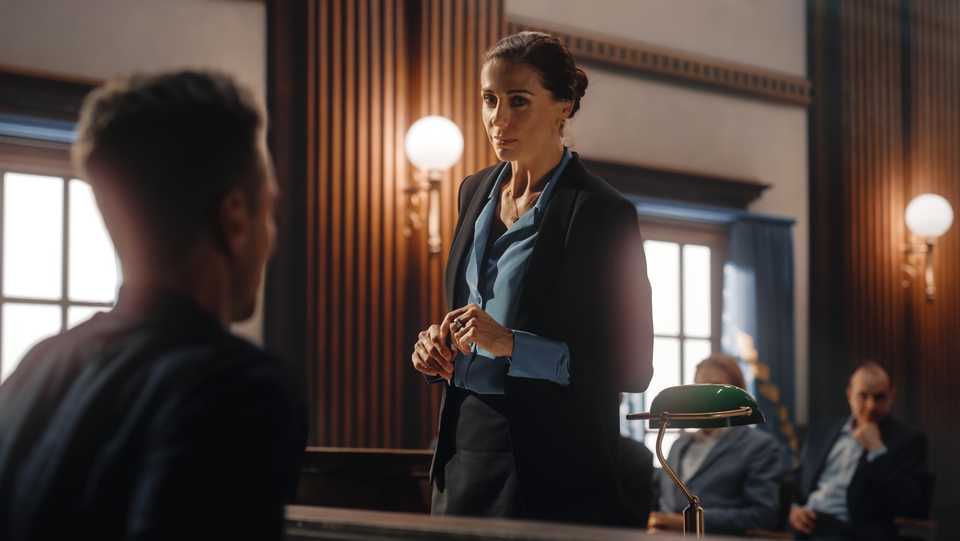
A skilled lawyer will also call into question the reliability of the evidence presented by the prosecution. This can involve challenging the credibility of expert witnesses, identifying gaps in the chain of custody of evidence, or pointing out any discrepancies in the prosecution’s narrative.
Presenting the Defence’s Case :
As well as challenging the prosecution case, the defence lawyer is responsible for presenting his client's case. This may involve calling witnesses to testify on behalf of the defendant, introducing exculpatory evidence, such as a mental disorder defence, or presenting alternative theories of the crime.
In some cases, the defence may choose not to present evidence and argue that the prosecution has failed to meet its burden of proof. The Crown prosecutor carries the responsibility of demonstrating, beyond a reasonable doubt, that the offence was committed. The defence lawyer is not required to prove their client's innocence and is not obligated to present a defence.
Therefore, the lawyer must carefully evaluate the strength of the prosecution's case to determine whether it is necessary to present a defence or if the case can be effectively challenged through argument and cross-examination alone.
Delivering Opening and Closing Statements
Opening and closing statements are critical components of a trial, and a defence lawyer in Toronto must carefully craft these statements to persuade the jury or judge. The opening statement provides an overview of the defence’s theory of the case, while the closing statement ties together all the evidence and arguments presented during the trial.
In both statements, the lawyer must be clear, concise, and persuasive, highlighting the weaknesses in the prosecution’s case and emphasizing the evidence that supports their client’s innocence.
Post-Trial Duties
A criminal defence lawyer’s responsibilities don’t necessarily end when the trial is over. There are often post-trial obligations that need to be addressed, particularly if the outcome is not in the client’s favour.
Filing Appeals :
If the accused is found guilty, a defence lawyer may file an appeal on their behalf. The appellate process involves reviewing the trial court’s decision for legal errors that may have affected the outcome. Appeals can be complex and require a deep understanding of appellate law and procedure.
In Toronto, criminal defence lawyers must carefully examine the trial record to identify any grounds for appeal, such as improper jury instructions, the admission of inadmissible evidence, or prosecutorial misconduct. If the lawyer believes that there were errors in the trial that warrant an appeal, they will file the necessary paperwork and argue the case before an appellate court.
Advising on Sentencing and Parole :
Even when the accused is convicted, a criminal defence lawyer in Toronto plays a crucial role during the sentencing phase. The lawyer can advocate for a more lenient sentence by presenting mitigating factors that may influence the judge's decision. These factors might include:
- The defendant's lack of prior criminal history
- Expressions of remorse for their actions
- Evidence of their efforts toward rehabilitation, such as participation in counselling or community service
In addition to advocating during sentencing, the lawyer may also support the convicted individual during parole hearings. This involves assisting the client in seeking early release from prison by demonstrating good behaviour or other relevant circumstances that warrant consideration for parole.

Successfully navigating this process requires a deep understanding of parole law, as well as the ability to craft a persuasive argument for the parole board, highlighting the individual’s progress and readiness to reintegrate into society.
Ethical Responsibilities
Beyond their legal duties, criminal defence lawyers have a number of ethical responsibilities that guide their conduct throughout a case. These ethical standards are set out by the Law Society of Ontario, which regulates the legal profession in Toronto and across the province.
Confidentiality :
One of the most important ethical duties of a criminal defence lawyer is the duty of confidentiality. Lawyers are obligated to keep all communications with their clients confidential, unless the client consents to disclosure or the lawyer is legally required to reveal the information.
This confidentiality is critical to building trust between the lawyer and client and ensuring that the client feels comfortable sharing all relevant information about the case.
Zealous Advocacy :
Criminal defence lawyers in Toronto are required to advocate zealously for their clients, within the bounds of the law. This means that they must do everything in their power to represent their client’s best interests, even if the client is accused of a serious or unpopular crime.
However, this duty is tempered by the lawyer’s obligation to act ethically and not engage in any conduct that would violate the law or the rules of professional conduct.
Duty to the Court
While criminal defence lawyers have a duty to advocate for their clients, they also have a duty to the court and the justice system. This means that they must not knowingly present false evidence, mislead the court, or engage in any conduct that would undermine the integrity of the legal process. Lawyers must balance their duty to their clients with their obligation to ensure that justice is done.
Awareness of Social Context and Mental Health
Criminal defence lawyers play a crucial role in advocating for their clients, and their responsibilities go beyond legal expertise. Although they are not sociologists, criminologists, psychologists, or psychiatrists, they must develop a sensitivity to social contexts and mental health issues.
This is particularly important in a city as diverse as Toronto, Canada’s most multicultural hub, home to thousands of visible minorities.
Understanding Mental Health Issues :
Defence lawyers must be attuned to their clients' mental health challenges. According to the Mental Health Commission of Canada, there is a significant over-representation of individuals with mental disorders within the federal prison population:
- 73% of federally sentenced men meet the criteria for one or more common mental disorders.
- 79% of federally sentenced women meet similar criteria.
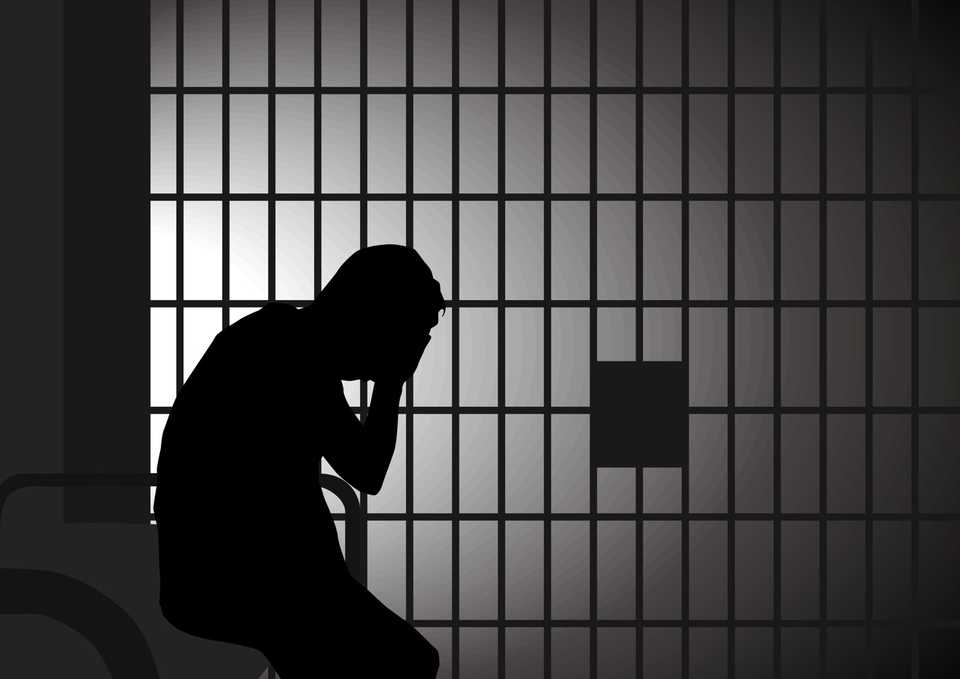
These disorders cover a wide range of conditions, including psychotic disorders, anxiety disorders, eating disorders, substance dependence, depression, bipolar disorder, and schizophrenia. While only a minority of these conditions may provide grounds for a mental disorder defence, a defence lawyer who is aware of these issues can offer tailored legal services.
Understanding how mental health impacts a client’s circumstances allows the lawyer to advocate more effectively, ensuring that these factors are considered during legal proceedings.
Addressing Social Issues :
In addition to mental health, defence lawyers must be aware of the social issues affecting their clients. This understanding enhances their ability to provide well-rounded representation. Social determinants, such as poverty, limited access to education, and systemic racism, can influence both criminal behaviour and outcomes in the legal system.
In accordance with Statistics Canada:
- In 2021-2022, Indigenous individuals made up 32% of those incarcerated in federal penitentiaries, despite accounting for only 5% of the Canadian population.
- Black individuals represented 9.2% of incarcerated persons, while comprising approximately 3.5% of the Canadian population.
Additionally, marginalized groups, such as the homeless, LGBTQ+ communities, and immigrants, face greater vulnerability to adverse interactions with the criminal justice system.
Being informed about these social dynamics enables defence lawyers to craft more effective strategies suited to their clients' unique backgrounds. This awareness ensures that legal services are tailored to the client’s specific circumstances, enabling lawyers to advocate with an understanding of the complexities their clients face.
In summary, criminal defence lawyers must embrace a holistic approach that encompasses both mental health awareness and social context. By doing so, they can better serve their clients, advocate for their rights, and contribute to a more equitable legal system!
Top 5 Best Criminal Defence Law Firms in Toronto!
In Toronto, many law firms offer exceptional services in criminal law. However, among these firms, ten stand out for their outstanding results and commitment to defending their clients' rights. Below is a list of the top five criminal defence law firms in Toronto, along with details about their services, contact information, and links to their websites:
| Firm Name | Practice Areas | |
|---|---|---|
| Toronto Criminal and DUI Lawyers | Assault Driving Related Offences Domestic Violence Sexual Offences Violent Crime Weapons Offences | Professional Regulation and Discipline White-Collar CrimeDrug OffencesRegulatory Offences Bail Theft and Fraud Offences |
| Caramanna Friedberg LLP | AssaultArsonSexual OffencesBail Break & EnterChild PornographyDrug OffencesTheft | Murder / Culpable HomicideObstruction of JusticePossession of Stolen PropertyProfessional Regulation and Discipline Driving Related OffencesHuman TraffickingConspiracy |
| Karapancev Law | BailDrug OffencesDomestic ViolenceSexual OffencesViolent CrimeChild PornographyYouth Crime | White-Collar CrimeHomicide and Attempt MurderHuman TraffickingProfessional Regulation and Discipline Driving Related OffencesTheft and Fraud Offences |
| Farjoud Law | ArsonAssaultBail Break & EnterChild PornographyDrug OffencesHuman TraffickingSexual Offences | Murder / Culpable HomicideObstruction of JusticePossession of Stolen PropertyProfessional Regulation and Discipline Driving Related OffencesTheft Criminal Appeals Conspiracy |
| Adam Boni LL.B. | BailCriminal Organization & Conspiracy ChargesDomestic ViolenceDrug OffencesRobbery | Illegal Gambling OffencesMurder & Manslaughter Homicide and Attempt MurderProfessional Regulation and DisciplineFirearms & Weapons Offences Search Warrant & Wiretap |
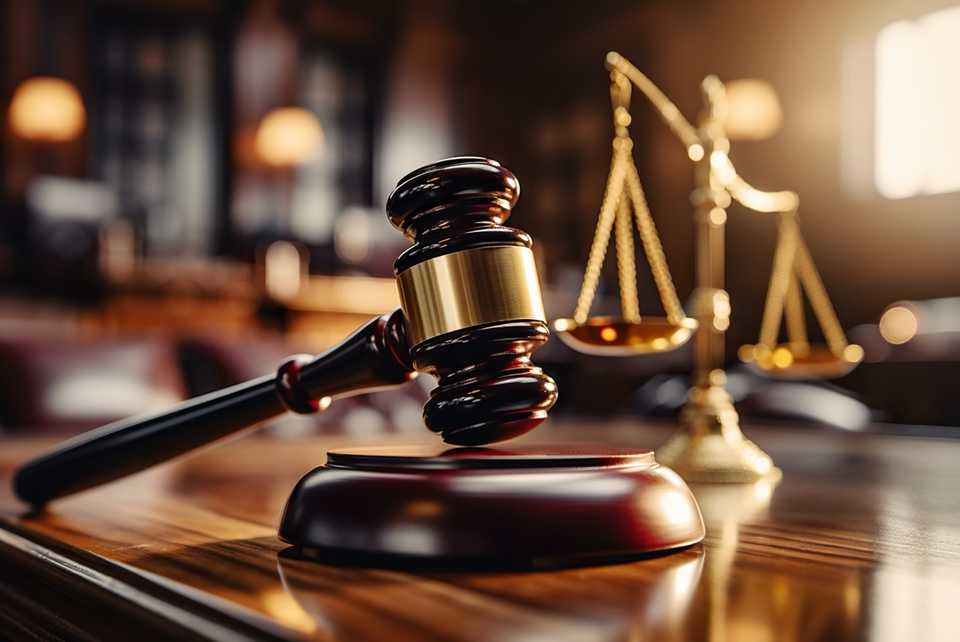
While these five law firms in Toronto are widely recognized for their exceptional expertise in criminal law, it's important to note that there are many other reputable firms in the city and across Ontario that also offer outstanding legal services in this area.
Each firm brings its own unique strengths and approaches to criminal defence, ensuring that clients have access to a diverse range of options when seeking legal representation. Additionally, some firms are well equipped to accommodate various budget ranges, making it easier for individuals to find quality legal support that aligns with their financial circumstances.
| Whether you choose a reputable firm or decide to explore other options, you can trust JuriGo to assist you in finding a criminal lawyer committed to protecting your rights and interests, regardless of the issue at hand! |
|---|
Find the Right Criminal Defence Lawyer for You in Toronto with JuriGo!
If you've been arrested and face criminal charges, it's crucial to seek the assistance of a criminal defence lawyer immediately. Their expertise ensures that you receive a comprehensive and strategic defence.
A skilled Toronto criminal defence lawyer will offer sound legal advice, meticulously assess the evidence, interview key witnesses, and manage all trial proceedings. They will explore every available defence and, if necessary, negotiate with the Crown prosecutor to achieve the best possible outcome.
With the support of an experienced criminal lawyer in Toronto, your chances of being acquitted increase considerably. Even if acquittal is not possible, he or she will work to reduce your sentence and protect your rights.
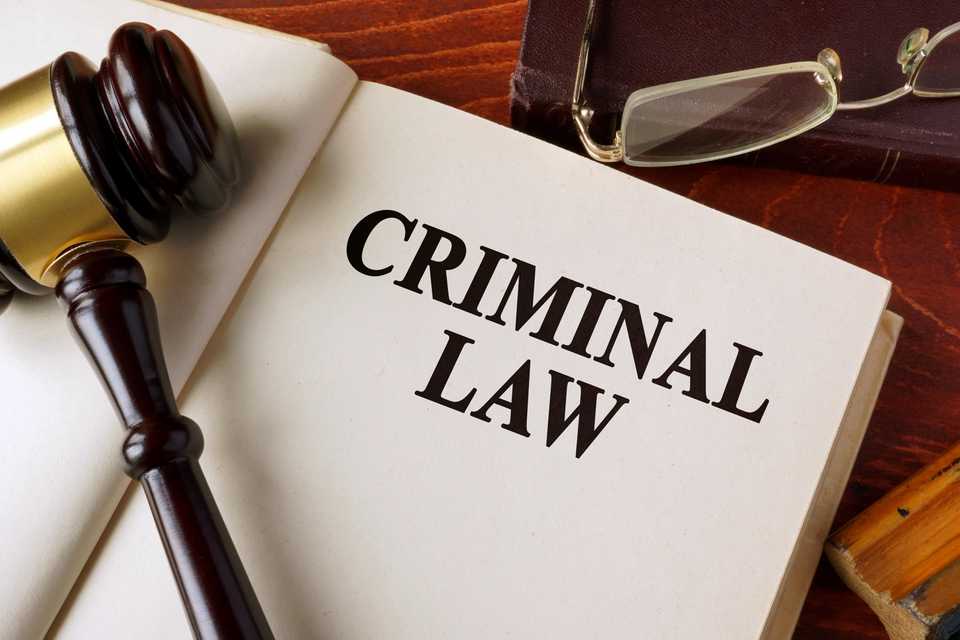
JuriGo provides a simple, fast, and free solution for finding a criminal defence lawyer! Our service is confidential, free of charge, and requires no commitment.
Simply fill out our request form, detailing your situation, and we will promptly connect you with a criminal lawyer in your area. Get started on your defence quickly and easily with JuriGo!